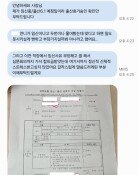Gwangju, the U.S. and Kim Il Sung
Gwangju, the U.S. and Kim Il Sung
Posted May. 23, 2016 07:36,
Updated May. 23, 2016 07:45
Seventy three students from five colleges in Seoul occupied the U.S. Culture Center in downtown Seoul on May 23, 1985. They staged a three-day protest, calling for Washington’s official apology for the Gwangju Uprising. Although it was widely believed that Washington is responsible for the May 18 Democratic Movement, it was the first time that they urged the U.S. for an apology in downtown Seoul. Although the student protestors disbanded saying that they did not want to influence the inter-Korean Red Cross talks in Seoul, the protest led to the dismissal of Lee Hyun-jae, the then dean of Seoul National University, and Kim Seok-hui, the then justice minister.
Pyongyang had long asked for Washington to take responsibility for the democratic movement. Kim Il Sung officially mentioned this at the sixth Congress of the Workers’ Party in October 1980. “It was the U.S that commanded the brutal killing of patriotic protestors in Gwangju, encouraged to harshly suppress democratic figures in the South, and that manipulated the fascist and dictatorial regime and placed the man-butcher in the head position.” It was not known to the world back then that Kim Il Sung mentioned Washington as a behind-the-scenes manipulator of the massacre.
Although the North Korean founder blamed Washington, saying, “It is responsible for the bloody tragedy that makes us shudder,” what he really wanted was something different. “We have proposed Washington several times for materializing talks between North Korea and the U.S. and signing a peace treaty,” Kim said, changing the tone. “We propose Washington once again to negotiate over changing the cease-fire treaty to a peace treaty.” He even sugarcoated by saying that such proposal is consistent with American citizens’ interests and hopes.
Washington officially clarified to this in a statement answering to questions at the special committee for the democratic movement at the National Assembly on June 19, 1989. Still, some people do not believe this. Although not all activists do not claim anti-U.S. today, the U.S. Embassy is heavily guarded. Had the generation who went to college in the 1980s known that Kim Il Sung criticized Washington mentioning Gwangju and begged for a talk between Washington and Pyongyang at the same time, would its anti-U.S. sentiment have changed?
한기흥기자 eligius@donga.com
Headline News
- N. Korea launches cyberattacks on S. Korea's defense companies
- Major university hospital professors consider a day off each week
- Italy suffers from fiscal deficits from ‘Super Bonus’ scheme
- Inter Milan secures 20th Serie A title, surpassing AC Milan
- Ruling and opposition prioritize spending amid tax revenue shortfalls







